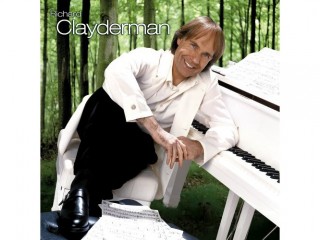
Richard Clayderman biography
Date of birth : 1953-12-28
Date of death : -
Birthplace : Paris,France
Nationality : French
Category : Arts and Entertainment
Last modified : 2011-11-03
Credited as : Pianist, Carnegie Hall, "Late Night with David Letterman"
0 votes so far
Richard Clayderman's billing as the world's most popular pianist was put to the test during an interview on the "Late Night with David Letterman" show. The Christian Science Monitor reported that Letterman, in order to judge Clayderman's reputation as a household name, placed a random telephone call to a home in Norway. The family not only knew him but owned several of his albums.
Born in France with the name Phillipe Pages, he took the stage name Clayderman (from his great-grandmother) because his real name was pronounced differently in every country. His father was a piano teacher and began teaching him classical piano at a young age. Clayderman entered the Paris Conservatory at age 12 and won first prize for piano at 16. When he found it difficult to make a living as a classical pianist, he turned to popular music and toured with French rock musician Johnny Hallyday. The turning point for Clayderman came when two record producers asked him to record "Ballad pour Adeline." That record, which helped launch his career into popular music, has sold over 20 million copies in 38 countries.
Clayderman's shift from classical to popular music not only allowed for his remarkably successful career but moved him into an area of music which he feels more closely reflects his personality. Although he still plays classical music on stage, for his United States concerts he focuses on romantic interpretations of popular American melodies. "I think there is a need for this kind of romantic music, " he told the Christian Science Monitor, "because we live in a world [where] terrible things are happening, and people need music to feel a bit cool and relaxed. I think a proportion of my audience also listens to other styles. For example, I'm sure the young people like rock 'n roll music. But through my playing they discover a new kind of music--classical, because sometimes I play that on stage."
In a review of his 1985 New York debut at Carnegie Hall, Variety suggested that, besides his repertoire and lush playing style, "Clayderman's main appeal lies in his youth and boyish good looks.... Coupled with his gentlemanly charm and his thick French accent, they promise to rope in the romantically inclined middle-aged Yank ladies who cotton to this ilk of soothing entertainment." The Los Angeles Times, also reporting on a performance from his first American tour, objected to the canned quality and cuteness of his audience interaction, but praised the show as "otherwise well constructed, with a good balance of original and established songs, and of romantic ballads and high-stepping rhythm pieces."
For his American concerts he performed with a 16-piece orchestra and offered romantic crowd pleasers like "Feelings," "The Way We Were," and "Chariots of Fire." The Christian Science Monitor remarked that, heard along with the orchestra, his performance had the "solidity and strength that spring from his training as a classical pianist." His concerts are marked by standing ovations and multiple encores.
For People to accuse Clayderman of displaying "all the emotions of a turnip" and for Rolling Stone to describe him as a "schlock pianist" is perhaps unfair. He may not be Horowitz but his music does fill a need as evidenced by over two hundred gold and platinum records and international sales reported at over 40 million albums. "If the sales figures Columbia claims are true," Stereo Review noted in 1987, "he is probably the most successful pianist in the world today."
















